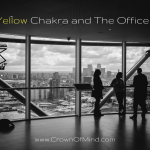“When was the last time you read a book?”
If you have to ask yourself this question, this post is perfect for you. Whether you’re already a lover of reading or find it a struggle to get through 10 pages, it’s more important now than ever to revisit why reading is such a valuable habit.
I reflect on an excerpt from my upcoming book SAGE Mind as to one reason why reading has been downgraded to something we only “get in” when we have time. This is why we need a new Art of Learning:
“Self-induced ADD
I may receive a strong response from this one, but I stand by it: some of our ADD-type tendencies are self-induced. I use the Internet as an example.
In the “old days,” we had Internet browsers that allowed for one window open. We had to use this one browser window to read the full page, scroll through and if we wanted to see another page, we had to click on the link. The link would take us to a brand new page. If we wanted to open a separate page, we had to create an entirely new window. More time-consuming of course, but it forced us to use the full extent of the page while open.
Then the multi-tab system was introduced. We didn’t have to open one window at a time. We could have multiple tabs open within the same browser. Then I could click on links in one page and open a new tab. Then repeat for every link I wanted. So I could then read a little bit of one page, then flip to another tab and scroll through that, then go to another tab and look at the pictures, then return to the first tab, and I could have twenty tabs open if I wanted doing this process.
I don’t think you need scientific research to realize that switching tabs this way creates a mental habit of short attention span. Eventually you notice your ability to finish a full-scale article on a single page weakens. You feel the anxiety of sticking with a page from start to finish.
Introduce the smart phones and apps.
Now, we have multi-tab browsing systems with phone apps that induce this same short-attention span tendency. We flip through apps, having several windows open on the Internet, seek videos and posts that have less than 200 characters. Do you see where this is going? Can you make the connections?
Reflect on your own life experience to notice this pattern. The result is a society grown accustomed to lacking the stamina to read for in-depth understanding, selects short pieces for assumed full-understanding and disinterest in handling content deemed “too long.” If you’ve managed to avoid this cycle, bless you. If not, read further to regain control of your mind.”
Not only does reading make you a better conversationalist, it expands your mind in several ways I tend to emphasize in many of my writings:
– Expands your imagination
– Helps you make connections between topics otherwise separate
– Enhances your cultural comprehensiveness (you’re more culturally savvy)
– You’ll make a better date (yes, you will) and be more attractive (yes, you will, especially to the sapiosexuals, see here)
– Makes you a more interesting person when you can communicate about a wide variety of subjects and ideas
– Strengthens memory and creativity
– You gain access to the collective understanding of everyone who’s ever shared their thoughts in a book
The list is enormous and not the focus of this post. If you need some scientific backing behind this wonderful activity, read this.
While in undergrad I would take a “free” psychology course courtesy of my professor friend E.M. He’d let me sit in his class and help his students out while I absorbed the assignments and knowledge shared in his lectures. Frequently we discussed matters of life and the realm of ideas. I thought he was insane and he thought I was crazy. And if he saw Ink & Instinct, I think his assumption would be confirmed. Then he introduced me to his reading strategy. It consisted of:
An autobiography /nonfiction
A fiction.
Biography.
He never fully explained why he did this himself, but his method was almost like my own at the time. I read voraciously and without a system, whatever came to mind at the time. This also proved to be valuable.
After examining his method, I realized there were specific benefits to reading these styles and took it further.
If you see reading as a mental roller coaster ride, an effective writer can take you on journeys, make you cry, motivated, aroused, laugh and feel engaged with the lives of the people in the book. This isn’t just about the book’s content, but the style with which the writer creates.
So I perceived…
[embedyt] http://www.youtube.com/watch?v=-Y0NhNDdoXQ[/embedyt]
An autobiography / nonfiction stimulates the mind by putting the reader in a deep, first-person perspective. You feel more immersed because of the many personal pronouns (I, me, our, my, etc.). You take ownership of the experiences. This makes you reflect as if you had those feelings or experiences. Your imagination moves with the writer as if you are the creator.
A biography is factual, based in history or some current event. This stimulates your focus for research and memory. You gain precision. You’re taken through accounts like a detective, or a scientist.
And a fiction is imagination-expanding. There are no limits to what your mind stretches to precisely because fiction is designed to do that.
By reading just these 3 types of styles in rotation you combine these mental qualities and put yourself in a conscious cognitive gymnasium.
I’ve taken this method and evolved it based on my SAGE Art of Learning, which is designed to use personal experience to make connections and learn faster. If you absolutely detest any of these styles, you can substitute.
I emphasize books here over other reading material because a book challenges your stamina. From start to finish, there are going to be boring parts, low points and very interesting pieces. You’ll train to continue on with the story despite how you feel in that moment and lose the tendency to ignore something just because it isn’t immediately entertaining.
If you must at first, use a newspaper, fiction and magazine or…a fiction, audio book and poetry book newsletter. Select a detective novel to hone your instincts. Choose a fantasy to uplift your curiosity about the cosmos. The choice is yours but the overall purpose is to engage your mind in these various styles because they augment your thinking in different ways.







